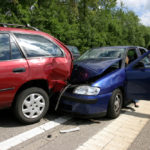5 Things All Hit and Run Victims Should Know
According to a recent AAA study, more than 1,500 people are killed in hit and run accidents in the United States every year. About 58% of these accidents occur on the weekend. Being hurt in a hit and run accident can be overwhelming and leave you with a long and frustrating recovery. You are probably left with many questions as well, most importantly: who will pay for your medical expenses, lost wages, and other damages? If you have been seriously hurt in a hit and run accident, there are several things you should know. Consult with an attorney such as the personal injury lawyer Fort Collins, CO locals trust.
#1. Get as Much Information as Possible
Never attempt to physically go after the person who hurt you as this may put you in greater danger. Instead, call the police to respond as quickly as possible. While the details are still fresh in your memory, write down everything you can remember about the accident, including the make, model, and color of the vehicle that struck you, a license plate number or any part of the plate number you can recall, which direction the motorist fled, and a description of the driver, if possible. If there were any witnesses to the accident, get their contact information so they can make a statement to the police. This can improve the odds of the police finding the driver who hit you.
#2. You May Have Coverage Through Your Insurance Policy
There’s a good chance you won’t be able to locate the other driver to make a claim against their insurance company, but you may be able to file a claim through your own insurance policy.
- Some states require all car insurance policies to include uninsured/underinsured motorist coverage, which can be used if you are the victim of a hit and run.
- Many states also consider hit and run accidents as non-insured accidents, in which case there is no deductible if you have this insurance coverage.
- Unfortunately, not all states have uninsured motorist coverage and it’s usually voluntary.
- Medical payment coverage on your policy can also help reimburse you for your medical bills after the accident, regardless of who was at fault.
#3. Most Hit and Run Drivers Are Never Found
It’s important to get adequate uninsured/underinsured motorist coverage because most hit and runs are never solved. Even if the vehicle is found, there is usually no way to prove who was driving at the time of your accident; it’s not enough to assume the owner was driving. Sometimes police and personal injury attorneys have luck with witness statements or video security footage from nearby stores, but there’s a good chance the driver will not be found.
#4. Hit and Run Drivers Usually Don’t Have Insurance
Even if you are able to locate the driver, remember that many flee the scene because they do not have insurance. You have the legal right to sue an at-fault driver for your damages if they do not have insurance or lack enough coverage for your damages, but people who do not carry car insurance are unlikely to have sufficient assets for you to pursue. If you are considering a lawsuit, a personal injury lawyer can help you investigate whether or not the at-fault driver has enough assets to make it worthwhile.
#5. There May Be Other Options for Paying Medical Bills
Your health insurance, Medicare, or Medicaid may pay for your medical expenses following a hit and run accident. If any insurer pays your medical expenses they are entitled to reimbursement if you recover compensation in a settlement or through a lawsuit if the other driver is located.
A personal thank you to our partners at Cannon Hadfield Stieben, LLC for their expertise into Personal Injury Law.



